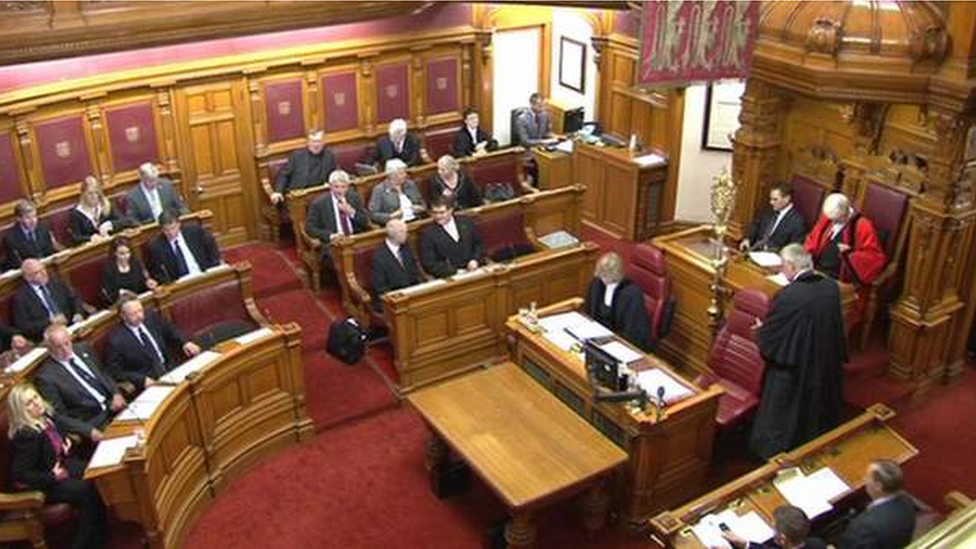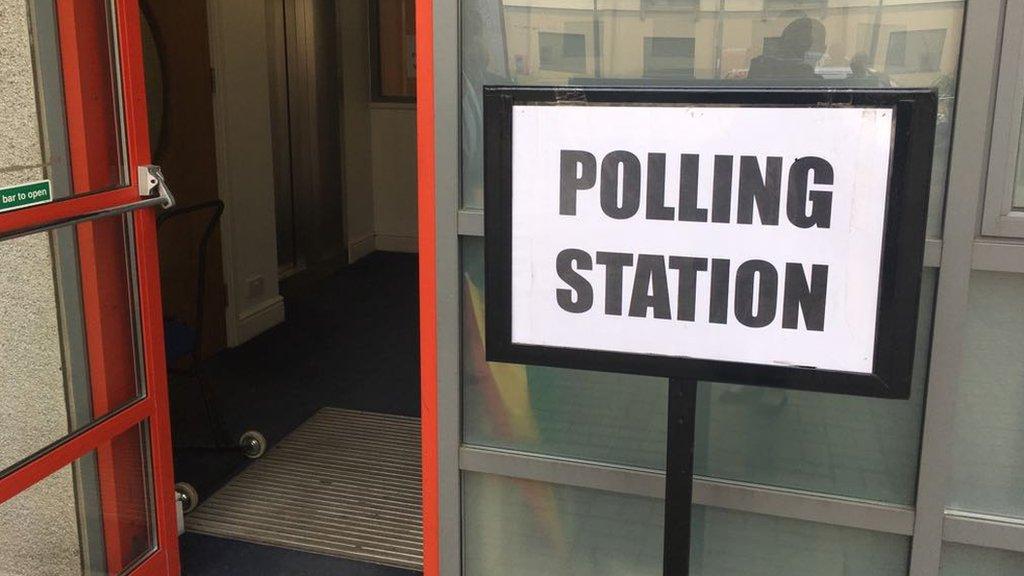'Fair representation' plans to be debated in Jersey States Assembly
- Published

The reforms would mean every member would be voted into the States Assembly in the same manner
Proposals for "fair representation" in Jersey's States Assembly are to be debated.
Current electoral rules mean there are three different categories of States members who are elected through separate and distinct systems.
The changes would eliminate the position of Senator and remove the automatic right of Constables to sit.
They would also mean all assembly members would be deputies and elected by the same means.
The proposals were submitted by the Privileges and Procedures Committee (PPC) and will be debated on 4 February.
They would reduce the number of members from 49 to 46 and divide the island into nine districts of equal population.
Eight of the districts would return five deputies, while St Saviour would have six.
Currently, the assembly has 12 Constables, eight Senators and 29 deputies:
Constables are elected by individual parishes and their candidacy is often uncontested
Senators are returned by island-wide elections, with the top eight selected
Deputies are elected from 17 districts informed by parish boundaries
The proposals also include an option for the States to call a referendum on the changes.
'Equal weight and power'
A report by the Commonwealth Parliamentary Association UK, following the 2018 general election, found elections in Jersey needed to be "fairer".
This led to the PPC drafting their proposals in order to simplify and improve fairness in the process, the PPC said.
Public consultation in 2019 found 74% of 560 islanders surveyed supported the changes, they added.
PPC chairman Russell Labey argued the changes would mean all votes had "equal weight and power".
Deputy Labey said visits to parish meetings showed him young people were not participating in the democratic process.
"If we're not careful democracy is going to die on its rear end in Jersey and we can't let that happen," he added.
Related topics
- Published5 July 2018

- Published19 May 2018

- Published16 May 2018
